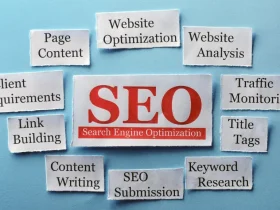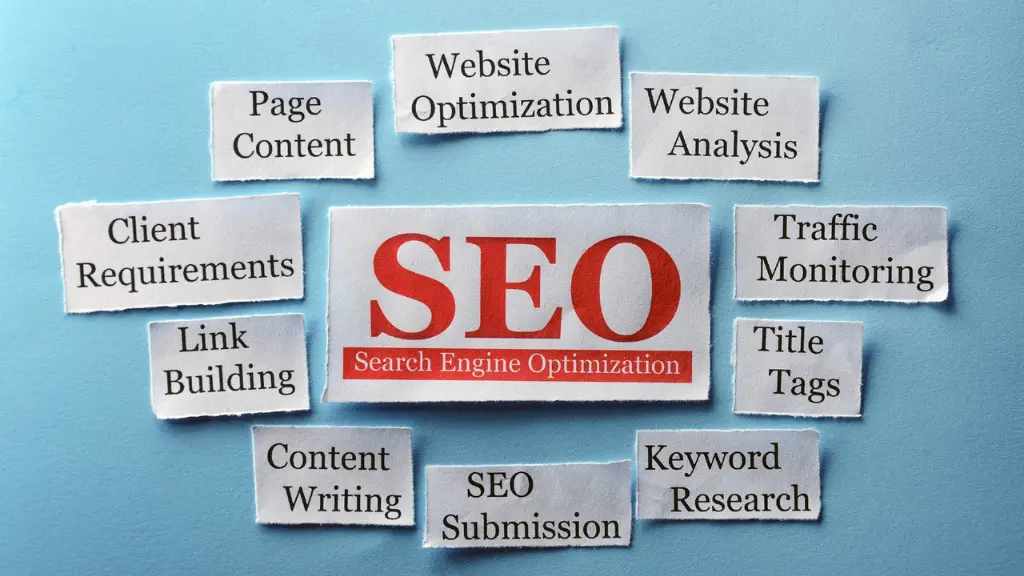In today’s digital landscape, having a well-designed website isn’t enough. To stand out from the millions of websites vying for attention, your site must be optimized for search engines.
This is where Search Engine Optimization (SEO) comes into play. But what exactly is SEO, and why is it crucial for your website’s success? Let’s dive in.
What is SEO?
SEO (Search Engine Optimization) refers to the practice of improving your website’s visibility on search engines like Google, Bing, and Yahoo.
It involves optimizing your website’s structure, content, and technical aspects to rank higher in search results for relevant keywords.
When your site ranks high on search engines, it attracts more organic (non-paid) traffic, which can lead to increased brand awareness, engagement, and conversions.
Why SEO Matters
- Increased Visibility and Traffic
SEO helps your website appear on the first page of search engine results. Since most users rarely scroll past the first page, a higher ranking ensures more visibility and clicks. - Cost-Effective Marketing
Unlike paid advertising, SEO focuses on organic traffic. Once optimized, your site can continue to draw visitors without the ongoing costs associated with ads. - Builds Credibility and Trust
Websites that rank higher are often perceived as more credible and trustworthy by users. SEO involves creating quality content and building backlinks, which further boosts your authority in your niche. - Improves User Experience (UX)
Good SEO practices, such as faster load times, mobile responsiveness, and easy navigation, enhance the user experience. A better UX not only pleases search engines but also keeps visitors engaged. - Supports Long-Term Strategy
SEO is a long-term strategy that delivers consistent results. While it may take time to see significant changes, the effects are lasting and compound over time.
Key Components of SEO
To understand SEO better, let’s break it down into its main components:
1. On-Page SEO
Focuses on optimizing elements within your website, including:
- Keywords: Researching and using relevant keywords naturally in your content.
- Meta Tags: Writing compelling meta titles and descriptions.
- Content Quality: Creating valuable, engaging, and original content.
- Internal Links: Linking to other pages on your site to improve navigation.
2. Off-Page SEO
Involves activities outside your website to improve rankings, such as:
- Backlinks: Getting links from reputable sites that point to your site.
- Social Signals: Sharing content on social media to increase visibility and engagement.
- Guest Posting: Writing articles for other websites in your niche.
3. Technical SEO
Ensures your website meets the technical requirements of search engines, including:
- Site Speed: Optimizing your site to load quickly.
- Mobile-Friendliness: Ensuring your site performs well on mobile devices.
- Structured Data: Using schema markup to help search engines understand your content.
- Secure Site (HTTPS): Protecting user data with an SSL certificate.
4. Local SEO
For businesses targeting a specific geographic location, local SEO focuses on:
- Google My Business Listing: Keeping it accurate and updated.
- Local Keywords: Including location-specific keywords in your content.
- Online Reviews: Encouraging positive reviews on platforms like Google and Yelp.
Common SEO Mistakes to Avoid
While learning the basics, it’s important to steer clear of these common pitfalls:
- Keyword Stuffing: Overusing keywords to manipulate rankings, which can lead to penalties.
- Ignoring Mobile Users: Neglecting mobile optimization can hurt your rankings significantly.
- Poor Content Quality: Publishing low-quality or duplicate content harms your credibility.
- Skipping Analytics: Failing to track performance prevents you from optimizing your strategy effectively.
How to Get Started with SEO
- Conduct Keyword Research
Use tools like Google Keyword Planner, Ahrefs, or SEMrush to find keywords relevant to your niche. - Optimize Your Content
Create high-quality, keyword-rich content that answers user queries effectively. - Focus on Technical Aspects
Ensure your website is fast, mobile-friendly, and secure. - Build Quality Backlinks
Network with reputable sites to gain backlinks that enhance your domain authority. - Monitor Your Progress
Use tools like Google Analytics and Google Search Console to track your SEO performance and make data-driven decisions.
Conclusion
SEO is more than just a tool; it’s a necessity for any website that wants to succeed online. By understanding its basics and implementing best practices, you can increase your site’s visibility, attract organic traffic, and grow your business sustainably.
Start small, stay consistent, and remember that SEO is an ongoing process. The effort you put in today will pay dividends in the long run.
Have questions about SEO? Drop them in the comments below, and let’s get your website ranking higher today!







Leave a Reply